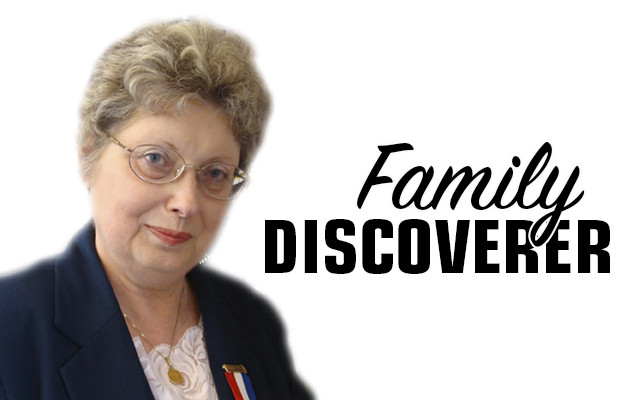
Searching through fog of illegitimacy
I recently received the birth record of a distant cousin’s spouse. I’d been having trouble locating his parents and the record revealed why. His birth record said he was illegitimate.
Younger genealogists may not realize that years ago the child of an unmarried couple was considered illegitimate. Women who got pregnant and weren’t married were considered immoral. They weren’t forced to wear a scarlet letter, but their children were stigmatized by terms such as “illegitimate” or “bastards.” Only children born to married parents were considered legitimate. On birth records there was a line indicating the child’s status.
In the movie “Tea With Mussolini,” an English woman accosts the Italian father of a young boy born out of wedlock saying, “There are no illegitimate children, only illegitimate parents.” I heartily concur with that sentiment.
In the case of my cousin’s spouse, his record shows the names of both parents but his surname was that of his mother. In many such cases the father’s name isn’t listed at all, often because he was a married man. My cousin’s husband was later adopted by a stepfather and took his surname.
For a genealogist in 2019 all this seems archaic or even barbaric, but as you research you are apt to uncover a record such as this in your tree. Families often did their best to hide a daughter who was unmarried and pregnant. It was a scandal, particularly in a small town where no secrets were hidden. The daughter may have been sent away to have her baby and the child given up for adoption. There are horror stories of parents who forcibly removed their underaged daughter’s child and had it adopted against her will. All this was legal in the past.
My mother told the story of a young girl giving birth at the same time I was born. The girl cried constantly for her baby but her parents refused to let her see the child or learn its sex. My mother was asked to give the baby its bottle while listening to the mother crying. Mom told me about this experience with tears in her eyes.
Sometimes, mothers would pass off a daughter’s child as their own to avoid public shame claiming their grandchild as a “menopause baby.” Times have changed for the better, or worse depending on your viewpoint, but today the birth of children out of wedlock is not only common but accepted by most people.
Entering the information on the birth status of my cousin’s husband into my genealogical software proved difficult. I had categories for adoption and “also known as,” but that wasn’t the whole story, so I ended up writing a note attached to the page with all his vital information.
As genealogists we seek to uncover the truth of our ancestry and relatives. You’ll find stories such as this in many family trees and if you disapprove try not to judge. We can’t change what happened in the past as much as we may deplore it.
Nancy Battick is a Dover-Foxcroft native who has researched genealogy for over 30 years. She is past president of the Maine Genealogical Society, author of several genealogical articles and co-transcribed the Vital Records of Dover-Foxcroft. Nancy holds a MA in History from UMaine and lives in Dover-Foxcroft with her husband, Jack, another avid genealogist. You can contact Nancy at nbattick@roadrunner.com.